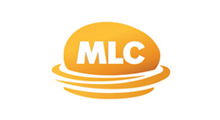Another subject that is most interesting when it comes to income protection insurance is that referred to in the terms and conditions section as ‘offsets.’ After knowing and understanding what offsets actually are, you surely would not like any of their forms. In general, offsets are provisions that you should watch out for especially before you actually sign up or purchase any income protection insurance policy.
What are offsets? Offsets are amounts of money that a policy provider could legally and logically deduct from the payout or claim you may receive in case you become disable to continue earning from employment (due to disability). Conventionally, income protection insurance firms have the right to deduct from your disability benefits the amount you are receiving from other sources during the coverage period. There are policies that reduce monthly benefits while others reduce the benefits that you may be entitled to receive in the future.
You should always strive to avoid offsets. However, in many instances, you would realize that it is just too hard to do so. That is because you would always have other sources of benefits or income, which may come along with the income protection insurance payout. Here are several specific amounts or sources of additional income that could be offset from your income protection insurance payout: sick leave payments, disability lump sums, common law sums, social security payments, and other undisclosed income protection policies.
Be reminded that income protection insurance firms do not need to state offsets in their terms and conditions. They often have the right to deduct amounts that they discover you may be receiving from other sources. Non-disclosure is not an assurance that you could avoid offsets. Insurers usually have their means to know undisclosed benefits you may be receiving from other parties.
















